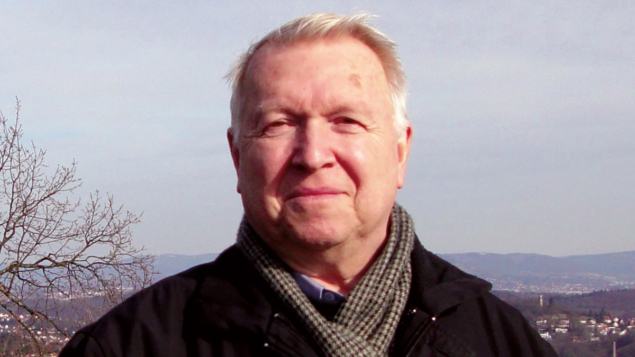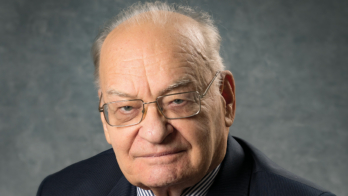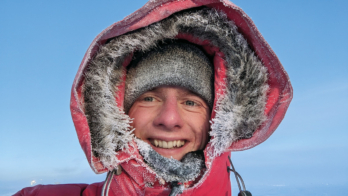
On 22 December we lost our colleague and friend, a brilliant theoretical nuclear physicist, Vladimir Kukulin.
Vladimir Kukulin was born in Moscow in 1939. He graduated with honours from the Moscow Engineering Physics Institute in 1965, where he started his physics studies under the supervision of Arkady Migdal. Vladimir obtained his PhD in 1971 and his DSc in 1991. For more than 55 years, he worked in the Institute of Nuclear Physics at Moscow State University (MSU), becoming professor of theoretical physics in 1997 and head of the laboratory for atomic nucleus theory in 2012.
Vladimir had many close scientific relations, including the supervision of students’ work, at JINR (Dubna), KazNU (Almaty) and other leading physics institutes in Russia, Kazakhstan, Uzbekistan and Ukraine. He worked as a visiting professor and gave lectures at universities in the Czech Republic, Germany, the UK, Italy, Belgium, France, the US, Canada, Mexico, Japan and Australia, and since 1996 had maintained a scientific cooperation between MSU and the University of Tübingen.
Vladimir’s research interests embraced theoretical hadronic, nuclear and atomic physics, few-body physics, nuclear astrophysics, quantum scattering theory, mathematical and computational physics, among others. Many of the approaches he developed, such as the multi-cluster model of light nuclei, the method of orthogonalising pseudopotentials, and the stochastic variational method, opened new directions in nuclear physics and quantum theory of few- and many-body scattering. During the past two decades, Vladimir and his co-workers developed the effective wave-packet continuum discretisation approach for quantum scattering, and proposed a scheme for the ultra-fast quantum scattering calculations on a graphics processing unit.
A deep understanding of nuclear and mathematical physics allowed Vladimir to suggest, in 1998, a new mechanism for the short-range nucleon–nucleon (NN) interaction based on the formation of the intermediate six-quark bag dressed by meson clouds (the dressed dibaryon). He developed, with his colleagues from MSU and the University of Tübingen, the original dibaryon concept for the nuclear force, which received new experimental confirmation with the discovery of hexaquark states at COSY (Jülich) in 2011. More recently, Vladimir and his coauthors demonstrated the decisive role of dibaryon resonances in NN elastic scattering and NN-induced meson production at intermediate energies.
A combination of strong intuition, comprehensive knowledge, and experience in various fields of science and technology, enabled Vladimir to generate new ideas and carry out pioneering interdisciplinary research at the intersection of physics, mathematics, chemistry and engineering. He made an indispensable contribution to solving important applied problems, such as controlled thermonuclear fusion, cleaning of natural gas, fire-fighting and neutron-capture cancer therapy.
Vladimir was distinguished by non-standard thinking, humanity, a sparkling sense of humour and an inexhaustible love of life. His enthusiasm and intellectual freedom inspired several generations of his colleagues and students. We will always remember Vladimir as an outstanding scientist, a wise teacher and a good friend.





